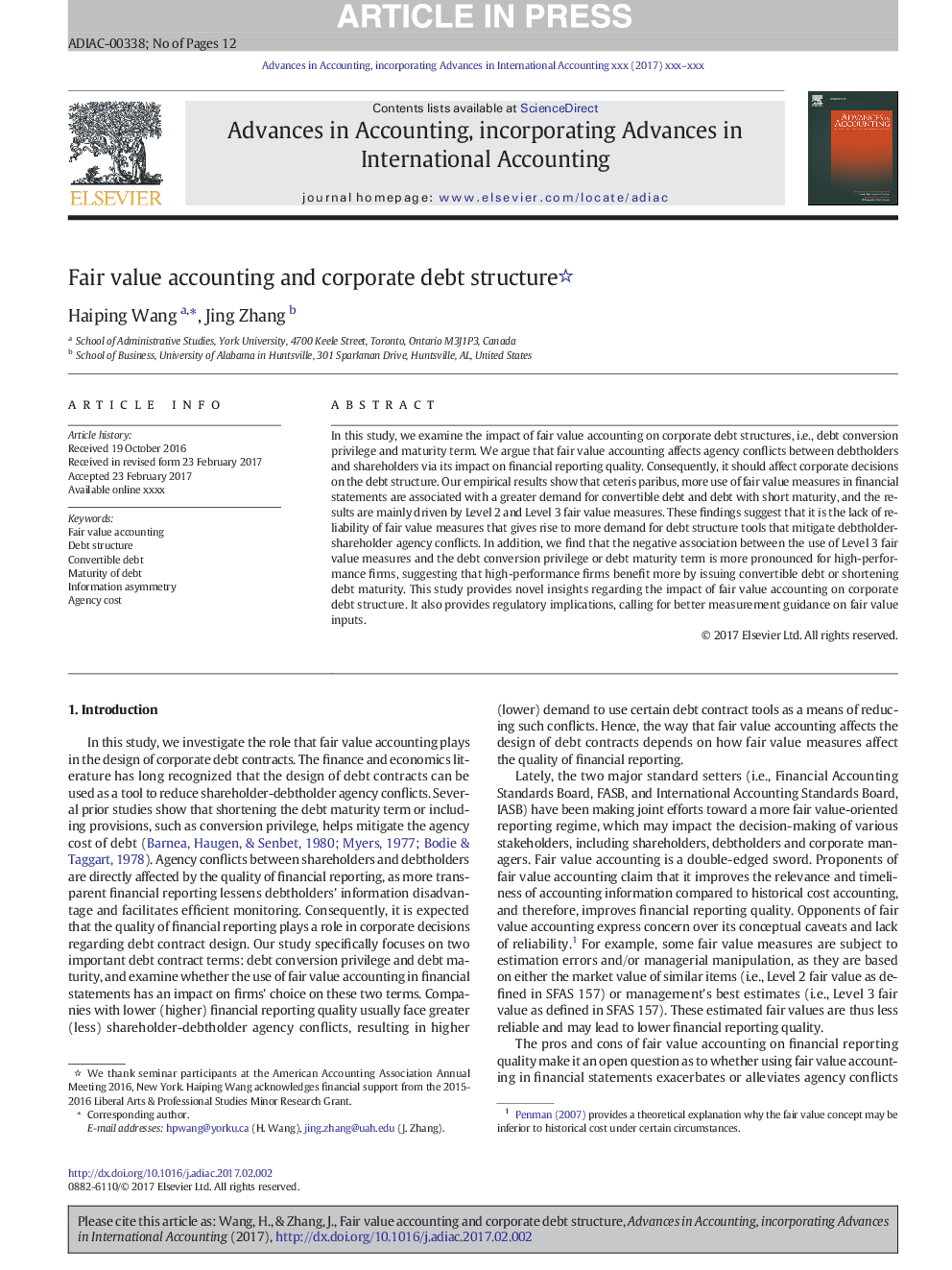ترجمه فارسی عنوان مقاله
حسابداری ارزش واقعی و ساختار بدهی شرکت
عنوان انگلیسی
Fair value accounting and corporate debt structure
| کد مقاله | سال انتشار | تعداد صفحات مقاله انگلیسی |
|---|---|---|
| 148066 | 2017 | 12 صفحه PDF |
منبع

Publisher : Elsevier - Science Direct (الزویر - ساینس دایرکت)
Journal : Advances in Accounting, Volume 37, June 2017, Pages 46-57
ترجمه کلمات کلیدی
حسابداری ارزش منصفانه، ساختار بدهی، بدهی قابل تبدیل، بلوغ بدهی، عدم تقارن اطلاعاتی، هزینه آژانس
کلمات کلیدی انگلیسی
Fair value accounting; Debt structure; Convertible debt; Maturity of debt; Information asymmetry; Agency cost;
ترجمه چکیده
در این مطالعه، تأثیر حسابداری ارزش منصفانه بر ساختار بدهی شرکت ها، یعنی معیار نقد تبدیل و مدت زمان بلوغ بررسی می شود. ما استدلال می کنیم که حسابداری ارزش منصفانه از طریق تاثیر آن بر کیفیت گزارشگری مالی بر آفرینندگی آژانس بین سهامداران و سهامداران تاثیر می گذارد. در نتیجه، باید بر تصمیمات شرکت در ساختار بدهی تأثیر بگذارد. نتایج تجربی ما نشان می دهد که استفاده از معیارهای ارزش منصفانه در اظهارات مالی با استفاده بیشتر از بدهی ها و بدهی های تبدیل شده با بلوغ کوتاه همراه است و نتایج عمدتا توسط معیارهای ارزشمندی سطح 2 و 3 ارزیابی می شود. این یافته ها نشان می دهد که فقدان اطمینان از ارزش های منصفانه است که باعث افزایش تقاضای بیشتر برای ابزارهای ساختار بدهی می شود که موجب کاهش تضاد آژانس های بدهکار و سهامدار می شود. علاوه بر این، متوجه می شویم که رابطه منفی بین استفاده از معیارهای ارزش عادلانه سطح 3 و معیار نقد شدن یا اصلاح بدهی بیشتر برای شرکت های با کارایی بالا است که نشان می دهد شرکت های با کارایی بالا با صدور بدهی قابل تبدیل یا کوتاه شدن بلوغ بدهی این مطالعه بینش جدیدی راجع به تأثیر حسابداری ارزش منصفانه بر ساختار بدهی شرکت ارائه می دهد. این همچنین مفاد نظارتی را فراهم می کند، خواستار ارزیابی بهتر در مورد ارزش های منصفانه می شود.

